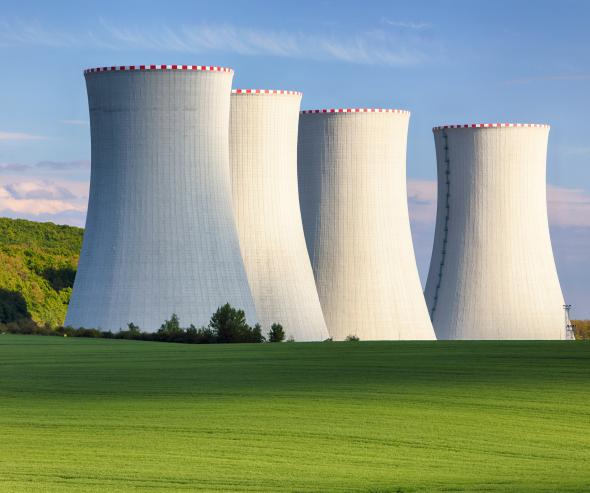The Autorité de la concurrence clears the acquisition of sole control of General Electric’s GE Steam Power division by EDF

Background
On 14 April 2023, EDF notified to the Autorité de la concurrence of its plan to take control of the activities of General Electric group’s GE Steam Power division.
After careful review of the planned transaction, the Autorité considered that it was not likely to harm competition and cleared the transaction unconditionally.
Parties to the transaction
A nuclear power plan consists mainly of:
- a ‘nuclear part’, the nuclear island, containing the reactors in which the nuclear fission reaction takes place;
- and a conventional island, containing the elements for producing electricity from the heat generated by the nuclear reaction.
GE Steam Power designs and manufactures conventional islands and is therefore active in the markets for very high power turbo-alternator sets (TA sets), intermediate power TA sets, and TA sets for small modular reactors (SMRs). GE Steam Power is also active in the markets for steam turbine services in power plants, alternator services in power plants, and pumps and pump-related services.
EDF is active at the downstream end of these markets, in the generation and wholesaling of electricity and in the associated market for the supply of nuclear islands, which are used to host the reactors where the nuclear fission process takes place, worldwide.
The vertical and conglomerate risks identified by the Autorité are not such as to harm competition
Regarding the vertical links between the markets for TA sets and the markets for the generation and wholesaling of electricity, the Autorité noted that EDF’s purchases of TA sets are limited to the very high power category, where the target company is currently the only real active actor. The transaction will therefore not change the competitive structure of the markets in question.
The Autorité also ruled out any risks of conglomerate effects between the target company’s activity on the TA sets market and EDF’s activity on the associated market for the supply of nuclear islands, given EDF’s limited market shares on the latter and the impossibility of taking advantage of strong position on a market for TSA sets to strengthen a position of the market for the supply of nuclear islands, due to the disproportionality of costs between the nuclear and conventional islands of a nuclear power plant.
The Autorité ruled out possible effects of the transaction on the markets for services to installed conventional islands, as well as on the market for pumps, in particular because of the parties’ limited market shares.
Finally, the Autorité considered that the transaction was not likely to harm competition through possible exchanges of confidential information within the new entity, in particular because of the existence of mechanisms to protect such information in EDF’s general purchasing conditions, as well as the public nature of certain information relating to energy production in nuclear power plants.
Decision 23-DCC-98 of 24 May 2023
Vertical effects
Vertical effects are investigated when a transaction involves stakeholders operating at different levels of the value chain. The Autorité then examines whether the transaction may allow the vertically-integrated entity to foreclose its competitors or to penalise them by increasing input costs or limiting their access to downstream customers.
Conglomerate effects
Conglomerate effects are likely to occur when the new merged entity extends or strenghtens its presence in markets that are different from those in which it operates but that are related in a way that may allow it to increase its market power.
Contact(s)
